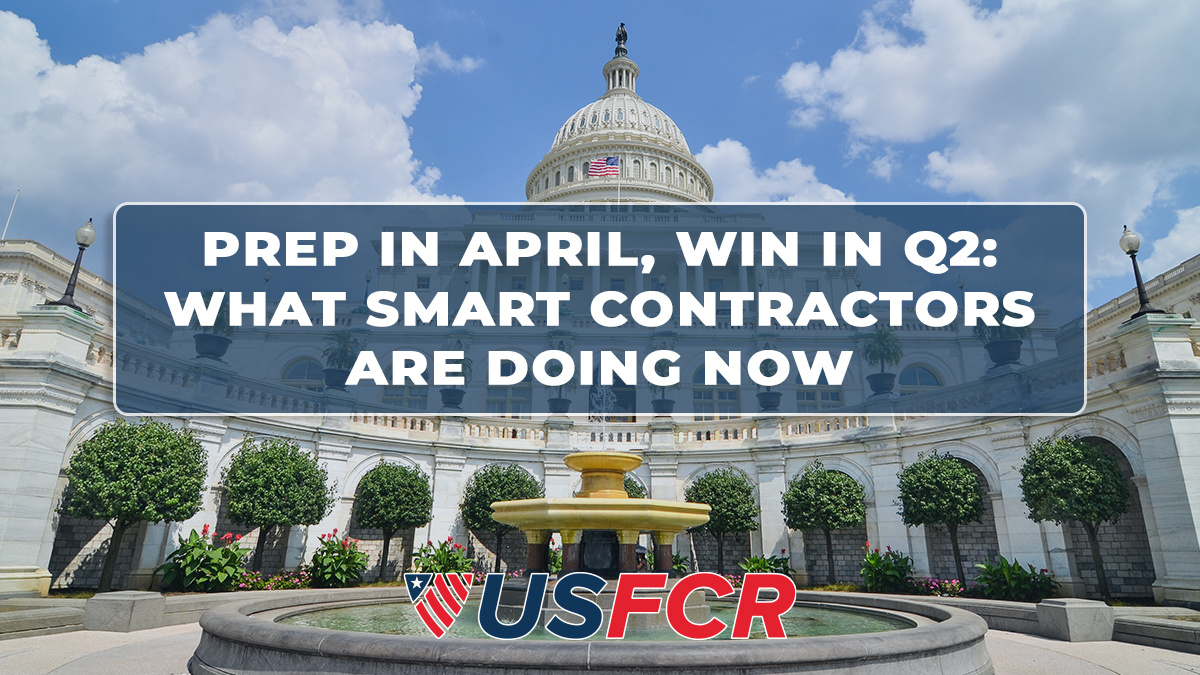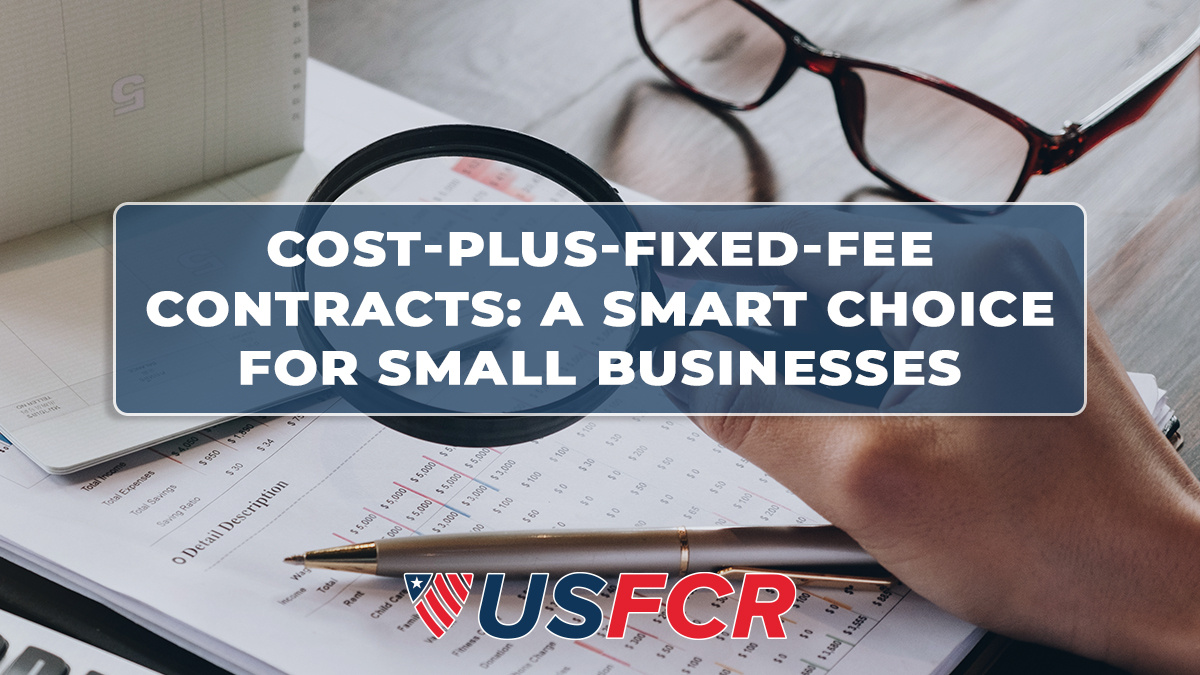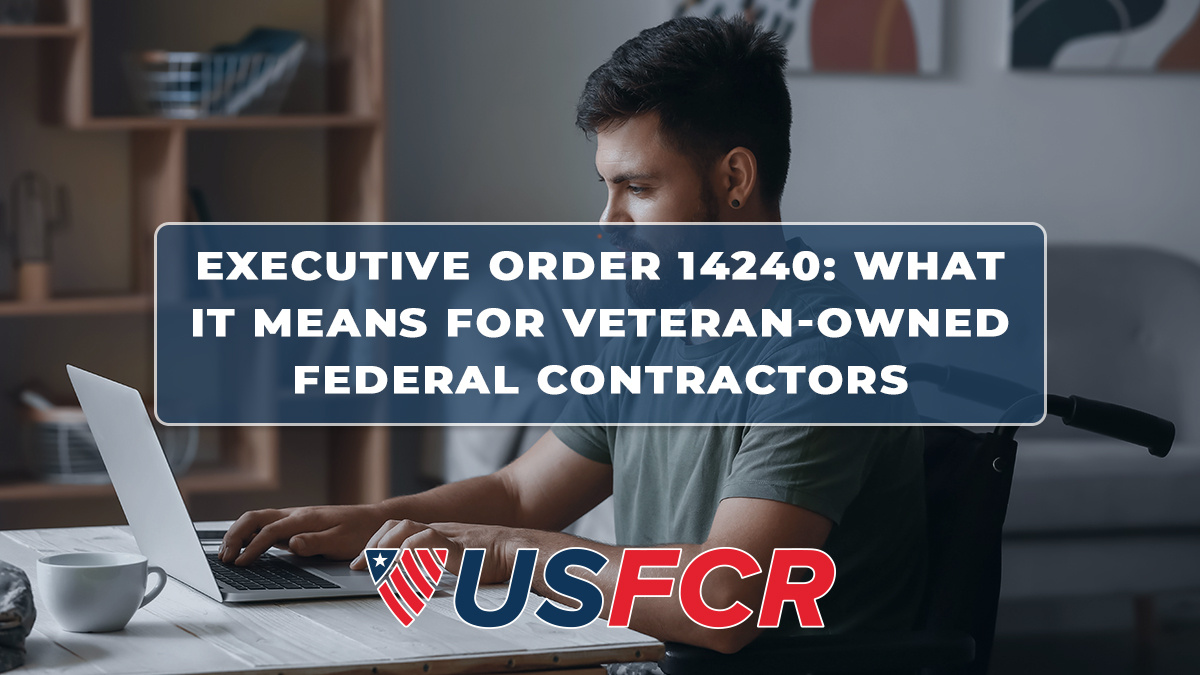If you’ve been in construction for years, you already know how to manage crews, estimate jobs, and deliver results. However, when it comes to federal contracting, it might feel like a completely different world. That’s normal. Plenty of experienced business owners run into that same feeling.
USFCR
Recent Posts
Beginner’s Guide to Government Construction Projects
Apr 21, 2025 8:00:00 AM / by USFCR posted in USFCR Academy, Guides, Industry-Specific Contracting
How Small Businesses Can Win and Manage Commercial Item Contracts
Apr 17, 2025 8:00:00 AM / by USFCR posted in News, Federal Spending
Government agencies often purchase goods and services from the same marketplace as private-sector businesses. Commercial item contracts simplify the process, allowing small businesses to sell their standard products to federal buyers with minimal modifications.
Don’t Let April Slip Away: Get Set for Summer Contracts
Apr 15, 2025 8:00:00 AM / by USFCR posted in News, Federal Spending
Why April Matters in Federal Contracting
Federal agencies don't wait for June to start spending. By the time summer hits, most buyers already have their budgets planned and vendors shortlisted. April is when the planning happens. It’s when buyers clear out Q1 backlogs, prepare their summer acquisition schedules, and move funds to priority projects.
A Cost-Plus-Fixed-Fee (CPFF) contract reimburses a contractor for allowable costs incurred during a project and provides a fixed fee for profit. Unlike Firm-Fixed-Price contracts, where contractors assume the risk of cost overruns, CPFF contracts protect businesses from financial loss while still ensuring a reasonable return.
June 5, 2025 | Clearwater, FL | Hosted by USFCR
Why this event matters:
Federal and commercial business growth is rarely a straight path. Most small businesses hit a point where they need better processes, smarter strategies, or just the right connection to move forward. That’s where Elevate 2025 comes in.
This one-day growth summit is designed for business owners, executives, and federal contractors who are ready to take focused action. You’ll get real strategies from professionals who’ve done the work, and you’ll leave with practical tools you can actually use.
Teaming vs. Subcontracting: What Every Contractor Should Know
Apr 11, 2025 8:00:00 AM / by USFCR posted in USFCR Academy, Guides
If you're in federal contracting, teaming up might be your ticket in—but only if you understand the rules of the game.
Many small businesses confuse teaming agreements with subcontracting. They both involve working with other companies. They both can help you win more contracts. But they’re not the same—and mixing them up can cost you opportunities or worse, land you in compliance trouble.
Let’s break it down.
GSA Pricing Strategy: How to Set Profitable and Compliant Rates
Apr 1, 2025 12:00:00 PM / by USFCR posted in General Services Administration (GSA), Guides, Federal Spending
How to Price Your GSA Schedule in 2025 (Without Losing Your Profit Margin)
Pricing under a GSA Schedule isn’t just about winning bids—it’s about protecting your bottom line while staying within the rules. Your GSA rates need to be competitive, but they also need to be compliant. If you don’t understand how GSA views your pricing, you could end up with rates that are unworkable, subject to mandatory reductions, or flagged during an audit. That’s why a strong GSA pricing strategy is more than just a number—it’s a defense plan.
The Real Reason Your Bids Are Missing the Mark: No Site Visit
Mar 27, 2025 8:00:00 AM / by USFCR posted in USFCR Academy, News
Understanding the Importance of Site Visits
Federal contracting can be highly competitive, and one of the most overlooked strategies for success is attending site visits. A site visit is your opportunity to walk the grounds, meet the project manager, and see firsthand what the job requires. Skipping it might save time in the short term, but it could cost you the contract in the long run.
Think of it this way: would you build a house without ever seeing the lot? Probably not. The same principle applies to federal contracts. A thorough site visit gives you insights that just aren’t possible through documents and specifications alone.
CMMC 101: Mastering Compliance for Federal Contracting Success
Mar 26, 2025 8:00:00 AM / by USFCR posted in USFCR Academy, Guides, cmmc, cybersecurity
Cybersecurity threats are on the rise, and the Federal Government is paying attention. To protect sensitive data within the defense supply chain, the Department of Defense (DoD) created the Cybersecurity Maturity Model Certification (CMMC). For contractors looking to secure or maintain government contracts, getting CMMC certified isn't just a recommendation—it’s a must.
Executive Order 14240: What It Means for Veteran-Owned Federal Contractors
Mar 25, 2025 2:28:02 PM / by USFCR posted in Veteran Owned Small Business (VETBIZ), News, Set-asides
The federal contracting world is about to undergo a significant change, and veteran-owned businesses need to be ready. Signed on March 20, 2025, Executive Order 14240 is set to consolidate federal procurement under the General Services Administration (GSA). The goal is to eliminate waste, reduce redundancy, and save taxpayer dollars by centralizing common goods and services procurement within one agency—GSA










